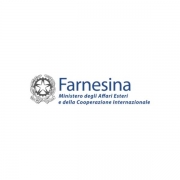WE MADE IT TO THE FINALS!
We are excited to announce that the ‘Heya Honna’ Initiative & ‘Shajara’ Initiative by our community members have made it to the finals of our partners Hamad Bin Khalifa University, Design Post-COVID Humanity (DPCH-3T) Competition, which aims to design viable, desirable and feasible, collective projects to build stronger communities that can support a post-COVID humanity.
‘Heya Honna’ is an initiative that aims at addressing period poverty, sex education and raising awareness about menstrual hygiene in the Arab world. The initiative also provides monthly hygiene products for women & empower women by enabling them to voice their stories.
The ‘Shajara’ Initiative focuses on UN SDG 15 Life on Land. It aims to engage the younger generation in playing a more direct and proactive role to sustain our environment.

Economics Workshop | Tunisia
Tunisia Hub organized a core team workshop on “Economics” hosting Hichem ben Meriem.
Al Sharq Xchange Program Launches!
We are excited to announce that Al Sharq Xchange program organized its first workshop last week with the attendance of our network members from 7 regions .
The Al Sharq Xchange is a debating platform hosted and organized by Al Sharq Youth Hubs rotating between them on monthly basis. The program aims to equip youth with the essential skills and etiquette of debating, while also engaging them in ideas, subjects, and topics that are of concern at a global, regional, and local level.
Keep an eye on our social media pages for more details to how to attend the exceptional debate session!
Formation Microsoft Power BI | Paris
France ‘Paris’ Hub hosted Karim Deriouch, a Data expert, in a data visualization training session, with the “Microsoft Power BI” tool
Tribal Conflicts in Sudan: How to Shift from Hostilities to Coexistence | Khartoum
Khartoum Hub organized a discussion on ‘Tribal Conflicts in Sudan: How to Shift from Hostilities to Coexistence’, hosting Mr. Abdalla Elsafi, Sudan Country Manager at Life & Peace Institute.
The session revolved around the question of bringing an end to the tribal conflicts cycle in Sudan, and how societies can contribute in making peace and in transforming the circle of hostility to coexistence based on peace and social solidarity.
Design Post-COVID Humanity Competition Finalists
WE MADE IT TO THE FINALS!
We are excited to announce that the ‘Heya Honna’ Initiative & ‘Shajara’ Initiative by our community members have made it to the finals of our partners Hamad Bin Khalifa University, Design Post-COVID Humanity (DPCH-3T) Competition, which aims to design viable, desirable and feasible, collective projects to build stronger communities that can support a post-COVID humanity.
‘Heya Honna’ is an initiative that aims at addressing period poverty, sex education and raising awareness about menstrual hygiene in the Arab world. The initiative also provides monthly hygiene products for women & empower women by enabling them to voice their stories.
The ‘Shajara’ Initiative focuses on UN SDG 15 Life on Land. It aims to engage the younger generation in playing a more direct and proactive role to sustain our environment.
The future of a Nation? 10 years after the Arab Spring | Diwan
Film Reading Session ‘Tereddüt’ | Istanbul
In this film reading session, Istanbul Hub, discussed ‘Tereddüt’ film with the guest Alparslan Nasİsmail
An Islamic Methodology for Today | Diwan
To what extent does the Public-Private Partnership (PPP) contribute to responding to the development requirements? | Tunisia
Tunisia Hub organized an event on “To what extent does the Public-Private Partnership (PPP) contribute to responding to the development requirements? ” hosting Borhene Dhaouadi, Director of the Tunisian National Smart Cities Program at the Tunisian Institute of Strategic Studies.
The sessions was a space to discuss on the private public partnerships, its definitions, it’s types and how to distinguish this partnership from other concepts(public deals, privatisations etc.). In addition to the contribution of this partnership in responding to the requirements of regional development and opportunities for youth through this type of partnership.
Local Governance, Development, and Social Cohesion | Khartoum
Khartoum Hub organized a discussion on ‘Local Governance, Development, and Social Cohesion ‘, hosting Professor Atta Battahani, Associated Professor in Political Science in University of Khartoum.
The session focused on the issue of Local Governance and its role in strengthening Peace and Social Cohesion, especially in conflict affected areas. It also tackled how the Peace Agreement dealt with wealth and resources distribution in the regions which witnessed war and conflict. Finally, the relationship between the central government and the local governments during the transitional period was discussed.